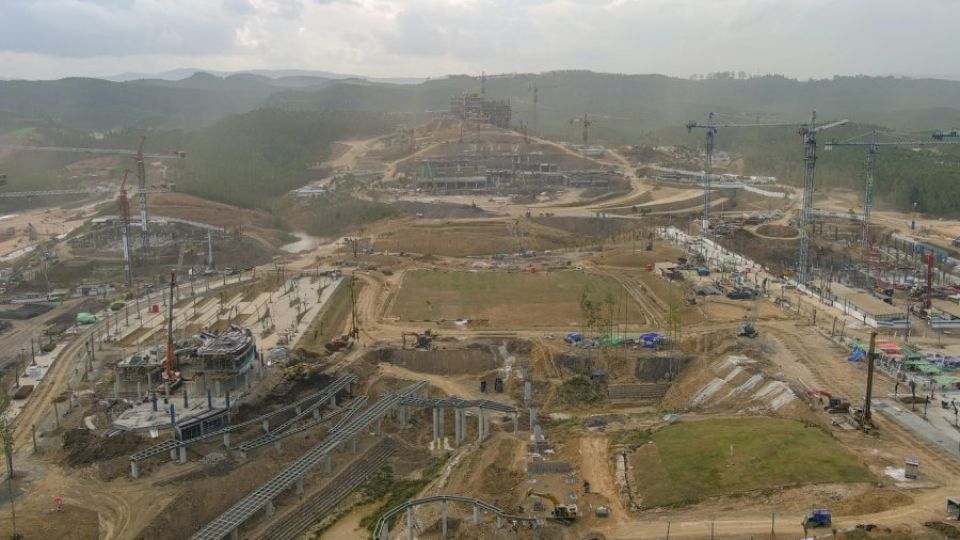October 24, 2023
JAKARTA -Businesses have requested the government grant direct approval of nearly a century in land rights for investments made in the country’s future capital city, Nusantara, which experts perceived as a sign of the private sector’s reluctance to invest in such a high-risk project.
The 2023 National Capital City (IKN) Law allows 95-year land rights in the form of the right to cultivate (HGU) but to be obtained in stages, with the first only granted for 35 years then extended for another 25 years and another 35 years separately. Each renewal requires firms to pass evaluations by the government.
Akin to the HGU, these renewal stages also apply to right-to-build (HGB) permits, which could span for 80 years.
The law also makes it possible for both HGU and HGB permits to be extendable by the same period, granting land rights up to 190 years and 180 years, respectively.
Sanny Iskandar, vice chairman of the Indonesian Employers Association (Apindo) put forward the idea that granting a direct leasehold for 80 straight years would not only offer greater legal certainty to prospective investors, but also make financing the project “more appealing” and “more bankable”.
“We hope [permits] can be granted straightaway once businesspeople demonstrate their willingness to materialize development investments within a certain period of time,” Sanny told reporters in a press conference in Jakarta on Oct. 12.
At an estimated overall cost of Rp 466 trillion (US$30 billion), the success of the Nusantara megaproject development hinges on 80 percent private sector funding, with the state shouldering just 20 percent of the cost.
The government has allotted at least Rp 65.5 trillion in the state budget to push the early phase development of the project until 2024. The year also marks the target to relocate the capital city from Jakarta to Nusantara before President Joko “Jokowi” Widodo’s administration ends.
Read also: House passes revised IKN Law to future-proof Nusantara against regime change
Achmad Jaka Santos Adiwijaya, secretary of the Nusantara Capital City Authority (OIKN) told reporters on Oct. 18 to “not be easily swayed by businesses’ assertions”.
He emphasized it was imperative for businesses to adhere to the regulation, while underscoring that evaluations played a critical role in safeguarding the construction of the megaproject’s progress.
“We can make breakthroughs in development, but these must not violate the law,” Jaka stressed.
OIKN spokesperson Troy Pantouw explained on Oct. 17 that the government needed to ensure the use of the land aligned with the terms of the initial investment permit by conducting periodic evaluations and stringent governance.
“If there is any deviation, the permit will undergo evaluation and even face revocation,” Troy cautioned, as reported in Tempo.
Center for Indonesian Policy Studies (CIPS) associate researcher Krisna Gupta told The Jakarta Post on Oct. 17 that a longer concession time would provide assurance and a guarantee for investors as commercial projects in Nusantara would require substantial investment.
“[Investors’ demands] makes sense. The larger the investment they expect, the longer the time needed for the return on investment,” he said.
Businesses’ request for a longer, direct concession period indicated that investing in the new capital city is associated with a high risk, as it was a completely new project, Krisna said.
He also pointed out that no new capital city worldwide had demonstrated exceptional commercial success, a factor that might well be amplifying investors’ hesitation.
Banks would feel more secure when doing business with investors who possessed longer concession periods, he said.
“If investors already had long-term lease concessions for 80 years, their exit clause would likely be less burdensome,” he explained.
Read also: New tax, land incentives to woo investors to capital city project
Indonesian Banking Development Institute (LPPI) senior faculty member Amin Nurdin told the Post on Oct. 16 that banks took long concessions into account to evaluate investment risks.
While banks scrutinize asset bankability and the soundness of business prospects, Amin emphasized that long-term market feasibility would also be taken into consideration.
“The law might have been clear, but the actual prospects remain unclear,” he said. “As a result, banks tend to take a cautious, wait-and-see [stance]”.
Banks primarily assess the repayment capacity and management quality of their borrowers to determine the size of loans they are willing to provide.
Meanwhile, collateral was considered a secondary option, he continued, while banks also considered various other factors besides concessions and collateral.


